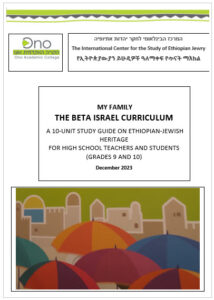MY FAMILY
THE BETA ISRAEL CURRICULUM

WEDDINGS
| Rabbi Dr. Sharon Shalom, From Sinai to Ethiopia, pp. 189-190 |
| Under Ethiopian custom, a man does not approach a woman on his own to propose a connection that leads to marriage. If he did this, he would be suspected of enticing her into prostitution, and would not be answered at all. Rather, the parents of the groom take the initiative for making a match. The parents of the bride wait for proposals. When parents think the time has come for their son to start his own household, they begin to consult with relatives about appropriate women. The family usually helps with the search. When they identify a young woman of appropriate age, they check several details. First, they make sure she is not a relative, as in Ethiopia it is forbidden to marry a relative for seven generations back. They then investigate the potential bride’s family, for observance of tradition, interpersonal behavior, financial status, or any rumors about the family. The investigations are done in secret, within the family. After they have decided on the appropriate bride, the father of the groom and a close friend visit the home of the bride’s parents, and ask to be their guests, with no advance notice. The prospective bride’s parents do not know the reason for the visit. |
| Michael Corinaldi, Jewish Identity: The Case of Ethiopian Jewry, p. 85 |
| Marriage under a huppah [wedding canopy], and by a ring or other articles of money value, is not customary among Beta Israel… Just before the end of the marriage ceremony, the priest recites the following prayer: “Be fruitful and multiply like the sycamore tree and always remain as fresh and as green as the tzivhah [flowering tree]. May the God of Israel grant you the blessing with which our forefathers Avraham, Isaac and Jacob and our foremothers Sarah, Rebeccah, Rachel, and Leah were blessed.” |







